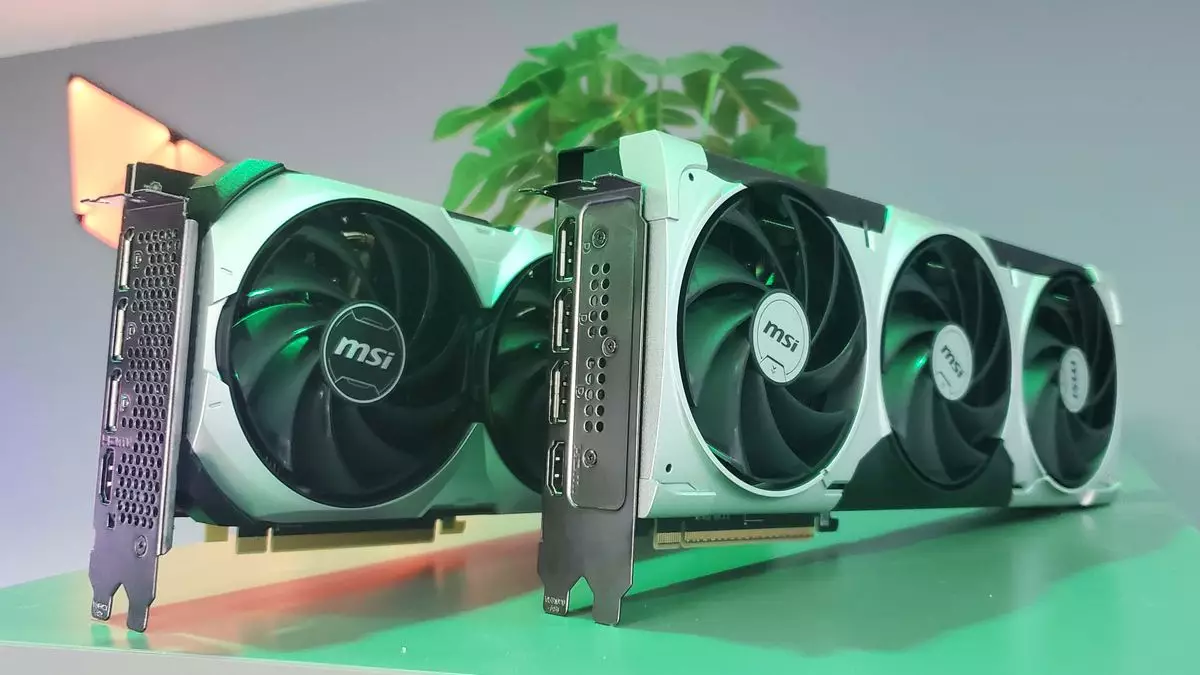The world of PC gaming has always been fraught with challenges, notably when it comes to acquiring high-demand graphics cards. As gaming technology advances, so too do the complexities within the supply chain and purchasing landscape. One notable case is the revival of the Newegg Shuffle, a system that has emerged in an attempt to address the overwhelming demand for certain Nvidia products—specifically the upcoming GeForce RTX 5070 and RTX 5070 Ti. However, the effectiveness of such lottery systems in alleviating consumer woes remains a topic for examination.
The Chaotic Landscape of Graphics Card Purchases
For many gamers and tech enthusiasts, obtaining a new graphics card often feels like a contest of speed and luck. The Nvidia GeForce RTX series has repeatedly been at the center of this frenzy. Reintroducing the Newegg Shuffle to coincide with the highly anticipated release of the RTX 5070 line reflects ongoing challenges in meeting consumer demand. This lottery system, initially implemented during the pandemic for the RTX 30-series cards, was designed as a way to give everyone a fair shot at purchasing these desired items—while also protecting the retailer’s inventory from being immediately depleted by bots.
The phrasing used in Newegg’s announcements offers insight into the persistent nature of this issue. Instead of the familiar “Add to Cart” option, prospective buyers will see an “Enter the Shuffle” button. This means that consumers won’t simply add these graphics cards to their carts at will; rather, they must register for a chance to buy, an arrangement that leaves many eager shoppers facing uncertainty.
The underlying intention behind lottery systems like Newegg Shuffle seems to be a noble one: leveling the playing field for all potential buyers. Yet, the reality is more complicated. While the system may prevent immediate sales to automated bots—algorithms designed to procure these cards before any standardized purchasing process could take place—there are still drawbacks. The inconvenience of having to enter a lottery for a right to buy leaves several consumers disenchanted, especially given the unpredictable nature of lottery outcomes.
Taking cues from international retail practices, such as the strategies employed by Japanese hardware stores like PC Koubou, may provide additional context. These retail chains showcase the feasibility of online lotteries while highlighting how they can be adeptly managed to serve a wider audience. However, potential disruptions to the purchasing process remain—as do concerns where manual intervention is required, which leads to frustrations among consumers.
Looking ahead to the launch dates of the RTX 5070 and RTX 5070 Ti—the former scheduled for February 20 and the latter for March 5—eagerness abounds among those who follow new technological developments. The anticipation surrounding these graphics cards comes with a mix of excitement and apprehension, especially given previous issues with tight supply chains and manufacturing limitations. While the staggered release may promise some relief from overwhelming demand, whether or not adequate stock levels are available remains to be seen.
Moreover, as we dive into the specifications of the RTX 5070 series, excitement also builds regarding their performance capabilities. Early reviews suggest that the capabilities of the RTX 5070 Ti will rival even the more powerful RTX 5080 model, stirring competitive fervor amongst gamers and content creators who rely heavily on cutting-edge graphics technology.
Ultimately, the revival of the Newegg Shuffle to manage the demand for Nvidia’s latest graphics cards represents a continued effort to balance fairness with market realities. While the system isn’t flawless, it recognizes the potential benefits of structure amid chaos. Gamers hoping for a smooth experience will need to remain vigilant and flexible, as they prepare for what is sure to be another competitive era in tech purchasing. As these trends continue to evolve, only time will tell if solutions like the Newegg Shuffle prove to be effective in turning the tide for eager gamers waiting for their next upgrade.

